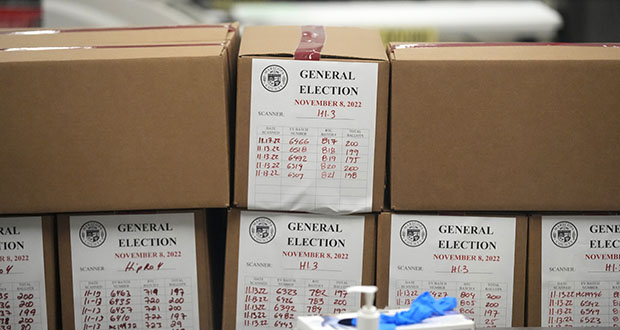Arizona court ruling on marijuana: A win for justice, but a risky message for drivers
Marc Lamber, Guest Commentary//October 9, 2024//
Arizona court ruling on marijuana: A win for justice, but a risky message for drivers
Marc Lamber, Guest Commentary//October 9, 2024//
I support the recent ruling by the Arizona Court of Appeals, but I fear its unintended consequences. While the decision rightly acknowledges that THC can linger in the bloodstream long after impairment has passed, the ruling may lead to a dangerous misconception: that it’s safe to drive after using marijuana. Just like some alcohol users think they can beat the system, some believe they drive better under the influence of marijuana. Now, these individuals may feel emboldened, knowing that science alone won’t convict them if they’re caught driving high.

Before this ruling, if THC metabolites were found in a driver’s blood, it was often presumed to be enough for a DUI conviction. But things shifted in 2020 when voters approved Proposition 207, legalizing recreational marijuana. Under the new law, the state could only impose penalties on drivers if they were “impaired to the slightest degree” by marijuana. However, THC’s prolonged presence in the bloodstream complicates things. The court’s ruling has now clarified this: THC metabolites alone are not enough to prove impairment. Law enforcement must show additional subjective evidence of a driver being impaired.
This stands in stark contrast to Arizona’s rules for alcohol. If a driver blows a .08 on a breathalyzer, that’s considered a clear-cut sign of impairment, and the law presumes DUI. For marijuana, no such scientific standard currently exists, leaving law enforcement with a more subjective—and less reliable—method of determining impairment.
While we’re making progress toward the development of a THC breathalyzer that could establish a clear standard for marijuana impairment, it’s now up to our lawmakers and law enforcement agencies to adopt such tools once available. The goal must be to create a standard that can reliably indicate when someone is truly impaired by marijuana, similar to the .08 limit for alcohol.
For the sake of safety on Arizona’s roads, we need to move quickly. This ruling, while correct, should not be misconstrued as a green light to drive under the influence of marijuana. Until we have the right tools and standards in place, we risk perpetuating dangerous myths that could lead to more accidents, injuries, and loss of life.
Marc Lamber is a Martindale Hubbell AV Preeminent-rated trial attorney and public safety advocate. A director at the Am Law 200 firm Fennemore, Lamber chairs the Personal Injury Practice Group and has been featured in national and local media, including the USA Today, ABC News, The Wall Street Journal, Forbes, the ABA Journal and many others.














































